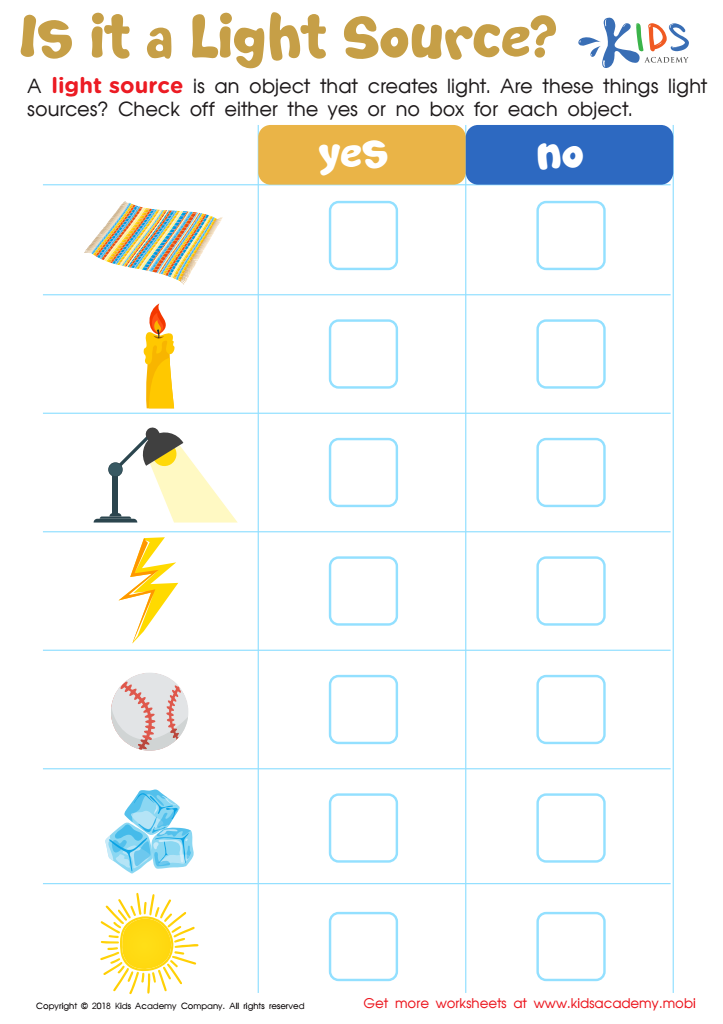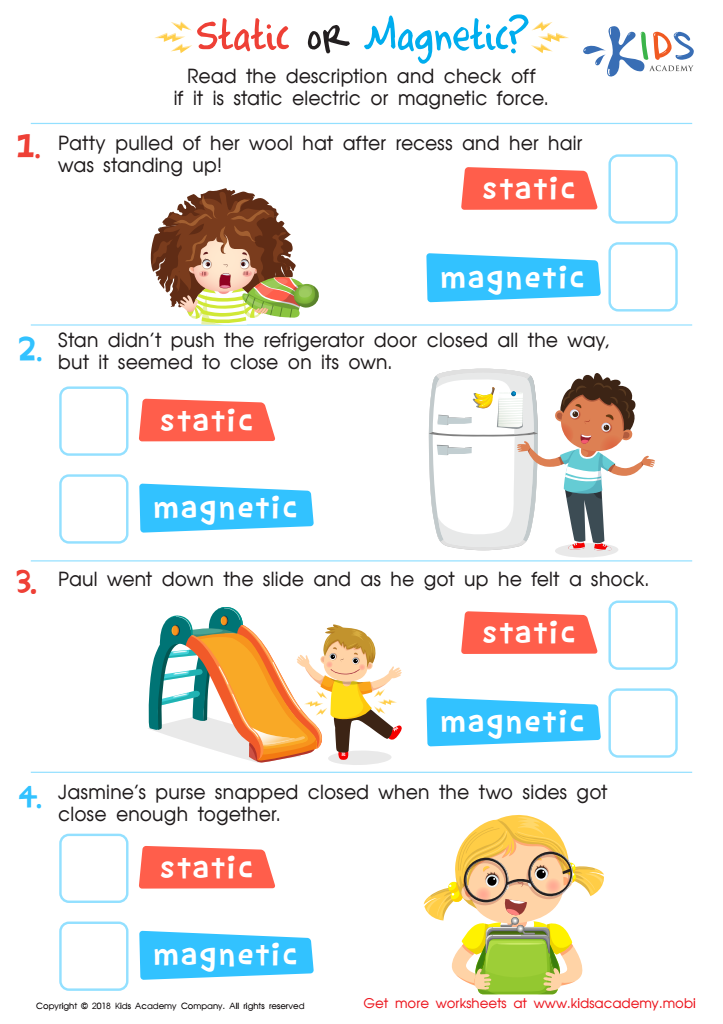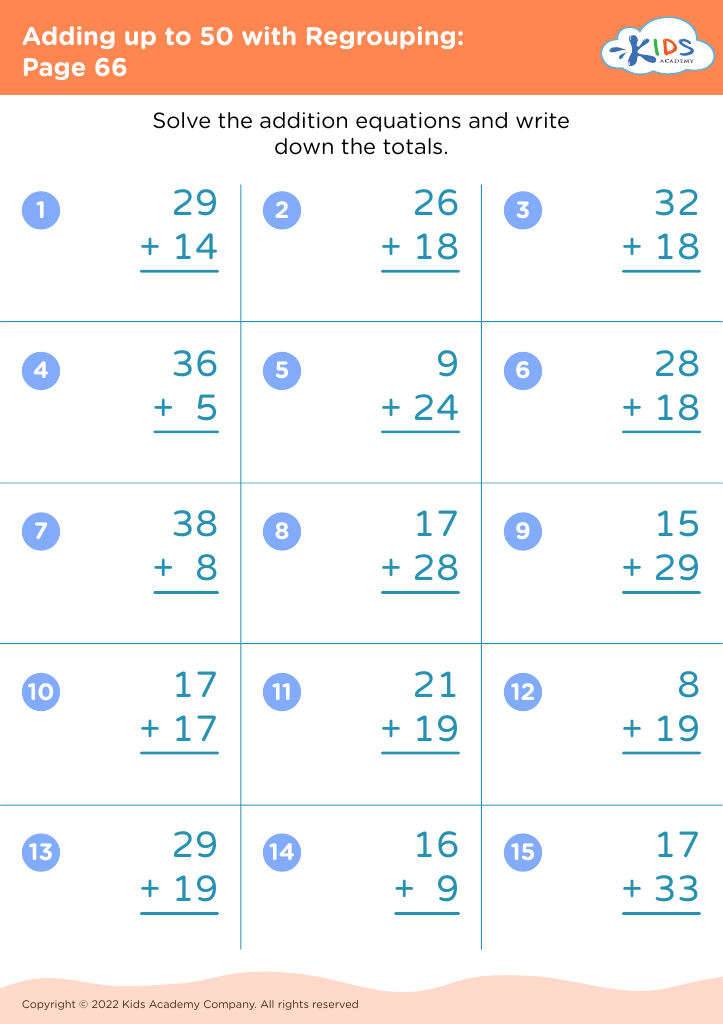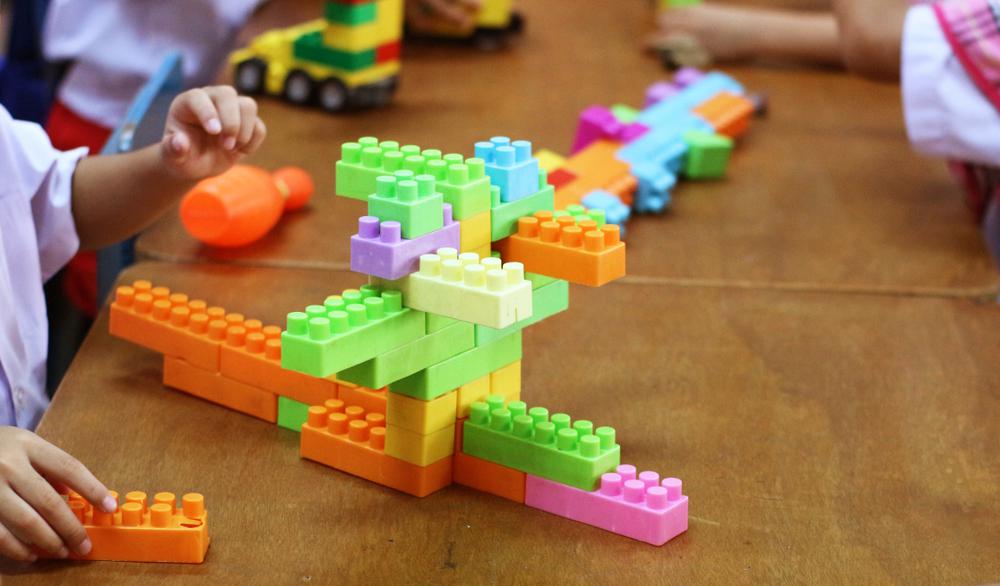Basic science knowledge Worksheets for Ages 4-9
3 filtered results
-
From - To
Explore our collection of Basic Science Knowledge Worksheets tailored for ages 4-9! These engaging, printable activities are designed to spark curiosity and foster foundational scientific understanding in young learners. Covering a wide range of topics, from the wonders of nature to basic physics, our worksheets make learning fun and interactive. Perfect for both classroom and home use, children will develop critical thinking and observation skills through exploration and hands-on practice. Enhance your child's scientific journey with Kids Academy's exceptional resources, helping them discover and appreciate the world around them. Start nurturing future scientists today!


Is It a Light Source? Worksheet


Static or Magnetic Printable Worksheet
Basic science knowledge is crucial for children ages 4-9 because it sets the foundation for their understanding of the world and boosts cognitive development. At this developmental stage, kids are naturally curious and eager to explore. Introducing basic science helps them develop critical thinking and problem-solving skills, which are essential for academic success and everyday decision-making.
Understanding basic scientific concepts, like how plants grow or why the sky is blue, encourages children to observe, ask questions, and seek out answers. This inquisitiveness fuels a lifelong love of learning and fosters a sense of wonder and curiosity.
Moreover, early exposure to science bolsters language skills as children learn new vocabulary and articulate their findings and thoughts. Engaging with science also nurtures creativity, as kids often conduct experiments, make predictions, and use their imaginations.
Parents and teachers play a pivotal role in creating a conducive learning environment. By incorporating simple scientific activities and discussions into daily routines, they help demystify complex ideas, making them accessible and fun. Ensuring kids have a solid grasp of basic science equips them with invaluable life skills, drives academic performance in various subjects, and prepares them for a technologically driven world.


 Assign to My Students
Assign to My Students

















